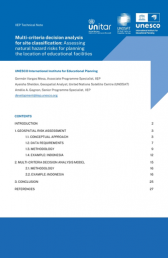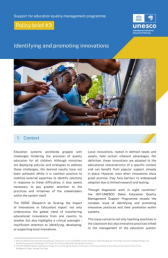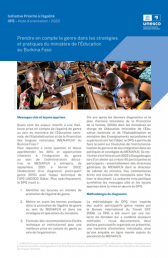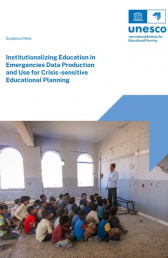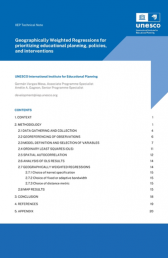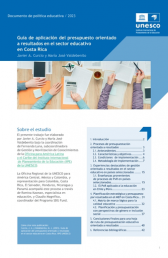New publications

Planning to Fulfil the Right to Education
This 18-page Methodological Guidelines and Toolkit was conceived to support governments in the planning process, can therefore be useful to educational planners, managers, and decision-makers at the national level, and other entities or partners such as independent human rights institutions, ombudspersons, NGOS, etc. Those at the sub-national level, and other organizations (including United Nations agencies, development partners, civil society, etc.) might also utilize them.
Leading teaching and learning together: the role of the middle tier
This research synthesis explores how middle-tier instructional leaders can form a nexus for improving the quality of education at scale. Through case studies it explores the professional practices and perceived impacts of instructional leaders and the enabling factors in the systems in which they work. It focuses on promising practices globally, and draws out insights and lessons for both policy-makers and practitioners.
Back to IIEP homepageThe following 4-page policy briefs provide a summary on the most important policy elements, and can be used as excellent reference material for the main principles behind effective FLP implementation.
Increasing Equity through Diverse Entry Pathways into Higher Education
Diversifying Progression Pathways in Higher Education for Greater Student Choice
Strengthening Pathways for Learners’ Transition to the Labour Market
Enabling Flexible Learning Pathways through Supportive Governance

Stay in touch
For further information or to order a print copy, please contact us.
Contact usSign up to CuratED, our monthly e-alert of online resources on educational planning and management.
Subscribe


